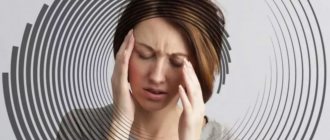: Reading time:
How to distinguish temporary blues from a dangerous illness.
If we list the possible symptoms of depression, there will be more than one hundred of them, because almost any discomfort in the body or change in the psyche can be its manifestation.
We took the most common symptoms and grouped them into nine groups. They are somewhat similar to the Hamilton Depression Scale, a template questionnaire that psychiatrists, psychotherapists and general practitioners can use to screen for depression. This scale contains a minimum of standard questions that help the doctor not to forget anything and collect as much information as possible.
Remember that the most accurate way to rule out depression is to talk to a psychiatrist or psychotherapist.
Here is a list of signs that may indicate depression.
Severe depression and suicide
Severe depression is dangerous because the patient completely loses the instinct of self-preservation. A persistent feeling of melancholy, as well as constant pain tormenting his soul, makes him think about suicide. An overwhelming feeling of guilt, a feeling that he deserves punishment, a desire to free his loved ones, often push a person to commit suicide. According to statistics, 15% of people with mental disorders of unknown etymology become victims of suicide.
At the onset of the disease, the person is so weak, exhausted by severe depression, that he is unable to take any steps to take his own life. But as soon as this condition goes away, the patient may attempt to commit suicide. He will think through the suicide plan in detail, develop it, and try to create a deceptive impression that he has gotten better, without leaving the thought of committing suicide.
The most common cases of suicide are among lonely people with a history of somatic illnesses and people with a history of suicide in their family.
What should a person do if he has all the signs of severe depression? There is only one answer to this question: seek help immediately. If depression is not treated, it will become chronic, and this is fraught with very dangerous consequences.
My husband has depression: what to do?
It is important to understand that a man himself will never admit that he has depression. Therefore, at her first, the wife and all her close circle should show activity. The ideal option is to immediately consult a psychiatrist.
For minor symptoms of depressive disorder, the following may help:
- distraction from everyday problems with a family vacation or trip;
- involvement in active participation in public and family affairs;
- refusal to reproach and/or ignore;
- encouragement, gratitude for doing even a small thing, raising a man’s self-esteem;
- creating a friendly atmosphere in the house;
- new positive emotions;
- involvement in the sports world (regular participation in sports).
It is necessary to convey to your spouse that it is impossible to insure against depression. But the following will help reduce its manifestations:
- Discussion of the problem - you should not withdraw into yourself. Discussing your worries with someone close to you reduces your fears by half.
- Physical exercise - any physical exercise stimulates the production of “happiness hormones”.
- Taking part in the lives of loved ones - interest and activity in family life or in your close circle distracts from your own experiences.
- Hobby - a hobby allows you to spend your free time to your advantage.
If all these measures do not help, do everything in your power to get your husband to see a psychiatrist.
Causes of male depression
Depression rarely occurs against a background of general well-being, especially in men. As a rule, this is prolonged stress or a severe traumatic event.
In men, the causes of depression are:
- problems at work;
- unstable financial situation;
- misunderstanding in the family;
- lack of friends;
- unstable position in society (emigration);
- death of a loved one;
- regular alcohol consumption;
- chronic diseases in children;
- long separation from loved ones (military service, business trips).
Often the intensity of stress is low: daily difficulties at work, disputes at home or with parents are a common occurrence for almost every person. But a long duration of the problem period or the subjective significance of a certain event (a strong desire to have a strong family, the need for recognition in the service, etc.) disrupts the biochemical processes in the brain and triggers the mechanism of depression.
The effect of stress is enhanced by the inability to express emotions and experiences. This is typical for men with a patriarchal family structure. At the same time, they are often required to have strong emotional reactions: strict upbringing of children, solving family problems, conversations with various authorities, etc.
A high level of responsibility for the family and the inability to share it with anyone also creates the preconditions for the occurrence of depressive disorder. After all, a man needs to be collected not only at work, but also at home, and there is practically no opportunity to relax.
Medication methods
In some cases, the use of drugs that affect the psychological state will be required. Depending on the clinical picture and individual characteristics of the person, the following may be prescribed:
- Antidepressants are drugs that stimulate the body’s production of “happiness” hormones.
- Normotimics are medications that reduce aggressiveness and normalize the patient’s psychological state.
- Tranquilizers - relieve overexcitation of the nervous system.
Antidepressants have a selective effect. This means that for some people it will cause significant improvement and disappearance of depressive symptoms, for others some symptoms will go away and some will remain, and for a third group of people the drug may not work at all. That is why these drugs should not be taken without a doctor's prescription. During therapy, it may be necessary to adjust the dosage or replace some medications with others.
Treatment takes place in 3 stages:
- The first or acute phase lasts 4-6 weeks and usually results in relief of depressive symptoms. If after this period there is no improvement, a drug of a different pharmacological group (with a different mechanism of action) is introduced into the therapeutic regimen.
- Second phase. Aimed at maintaining a state of remission.
- The third stage of treatment is used in cases where a man experiences frequent episodes of depression and includes the preventive use of antidepressants.
All drugs are prescribed only when it is impossible to do without them.
Depression test
The psychological tools that psychiatrists, psychologists and psychotherapists use in their work have certain specifics. These can be tests, questionnaires, questionnaires, projective techniques. The difficulty lies in the correct interpretation of the material received from the patient.
It is strictly not recommended for patients to use their own intuition and information on the Internet. The patient may misdiagnose himself and prescribe medications that are not required in his case.
Moreover, most tranquilizers, antidepressants and other strong drugs are available only with a doctor's prescription. The use of dubious remedies will not only not help, but will also aggravate the situation and increase the level of intensity of symptoms.
In addition to tests, Dr. Isaev’s clinic performs diagnostics using modern equipment, which can be used to determine the presence of concomitant diseases. In some cases, treatment must begin with them, since such pathologies complicate the clinical picture.
How common is depression during menopause?
Research shows that between 8 and 38 percent of women going through menopause experience mood changes. Premenopausal women are twice as likely to suffer from depression than women who have not yet entered perimenopause.
It is clear that a history of depression makes menopausal women more susceptible to developing it. Women who have experienced PMS or postpartum depression are at greater risk of depression during menopause than women who have not experienced postpartum depression.
It's not surprising that women with a particularly long transition to menopause find themselves more prone to depression than women with a shorter transition, especially if they also experience other unpleasant menopausal symptoms.
How to get out of depression
Psychologists advise to be attentive to your body, at the first signs of depressive episodes, try to help yourself before visiting a doctor. It is important to follow these rules:
- There is no need to avoid a bad state and mood and hate yourself for it. The patient must accept himself as he is at a particular moment. This is a normal phenomenon that occurs under the influence of external and internal factors. Depression must be fought, but this must be done gently, without putting strong pressure on the psyche.
- Redirecting focus to another activity. Reading books, riding a bike, going to the gym, swimming, and changing the environment helps a lot. If finances and time allow, you can go on a trip, see many interesting and new places, in this case the apathy often goes away on its own. Perhaps the person simply lacked impressions.
- You need to get rid of the fear of losing your positive emotions. Manifestations of joy, euphoria, and pleasure should be enjoyed at the moment they appear, and not constantly replay bygone times in your thoughts.
- Communication with new people, interesting contacts. You can go to an exhibition, cinema or theater, meet interesting interlocutors, let others help. There is no need to be afraid of being rejected or not needed; in most cases, such experiments end successfully.
- The psychotherapist will recommend meditations that can be used when the first symptoms of depression approach. Such techniques help develop a sense of inner integrity.
- Normalization of sleep and rest patterns. An exhausted body needs help first. A full eight-hour sleep helps restore its reserves and promotes inner peace.
How can you minimize mood swings?
Making some lifestyle changes can help minimize mood swings. If you have problems sleeping, the following basic rules, which experts call “sleep hygiene,” can help:
- Don't drink alcohol or caffeine within four hours of bedtime. Alcohol may help you fall asleep faster, but it also wakes you up when its blood levels drop.
- Try not to nap during the day because it makes it difficult to fall asleep in the evening.
- Eating heavy, spicy or sweet foods can also affect sleep, so try not to eat at night. While there is no scientific evidence to support this claim, some women report that cutting back on spicy foods, alcohol, and caffeine reduces the number of hot flashes they experience, including night sweats. To see if this will help you or not, try experimenting with removing these foods and drinks from your diet.
- Make your bedroom more comfortable for sleeping by setting the heat to a comfortable level, blocking out noise and light as much as possible, and avoid turning on your phone right before bed.
- Many women say that yoga and meditation help improve their mood. Some sections offer yoga classes specifically for women experiencing menopause. Regular exercise also helps you feel better overall.
Questions and answers
Is it possible to get rid of a bad mood on your own with the help of antidepressants?
We categorically do not recommend prescribing medications yourself. This is done by the doctor based on examination of the patient. Many medications have a number of contraindications, which the patient himself may not be aware of.
How long does it take to treat depression?
This is an individual indicator, it all depends on the form of the disease and its stage.
Severe depression symptoms
The fact that a person is severely depressed is determined by the following symptoms: depressed mood, decreased performance and activity, constant feeling of fatigue, inability to concentrate on anything, constant self-flagellation and guilt, low self-esteem, thoughts of suicide, a gloomy and hopeless look for your future, insomnia or, conversely, severe drowsiness, loss of appetite.
The clinical picture of severe depression is as follows: a person experiences a persistent feeling of melancholy every day; his mood is depressive; signs of psychomotor retardation are observed; he cannot concentrate his attention on anything; sexual desire decreases; in the morning the patient feels tired and exhausted due to the fact that he cannot sleep normally at night. Manifestations of severe depression also include a feeling of suffocation and discomfort in the chest, complete apathy, pessimistic views of one’s future (a person always expects an accident to happen), lack of will, inability to make any decisions, constant drowsiness and a feeling of laziness.











